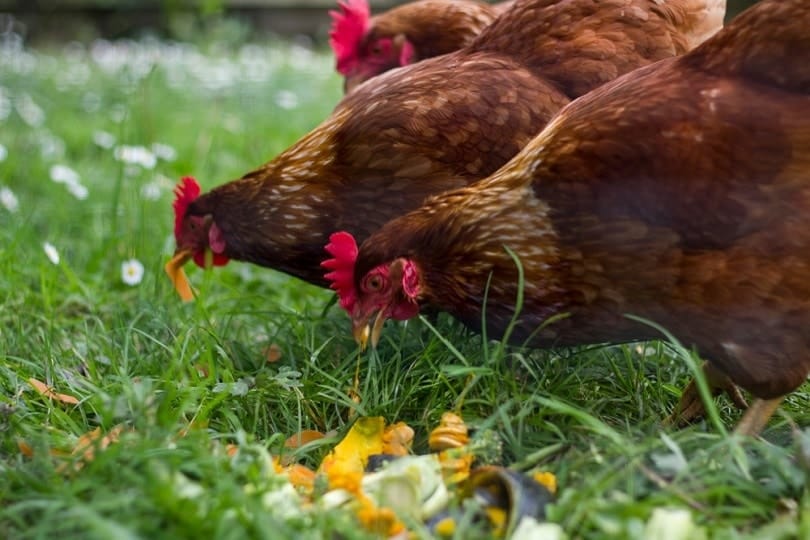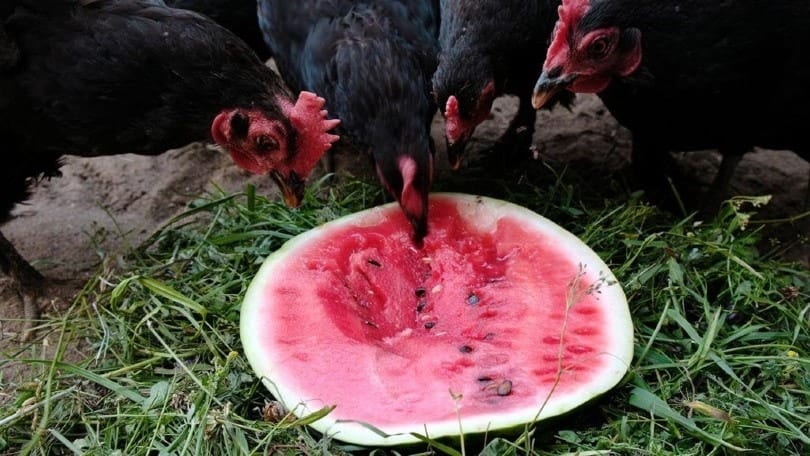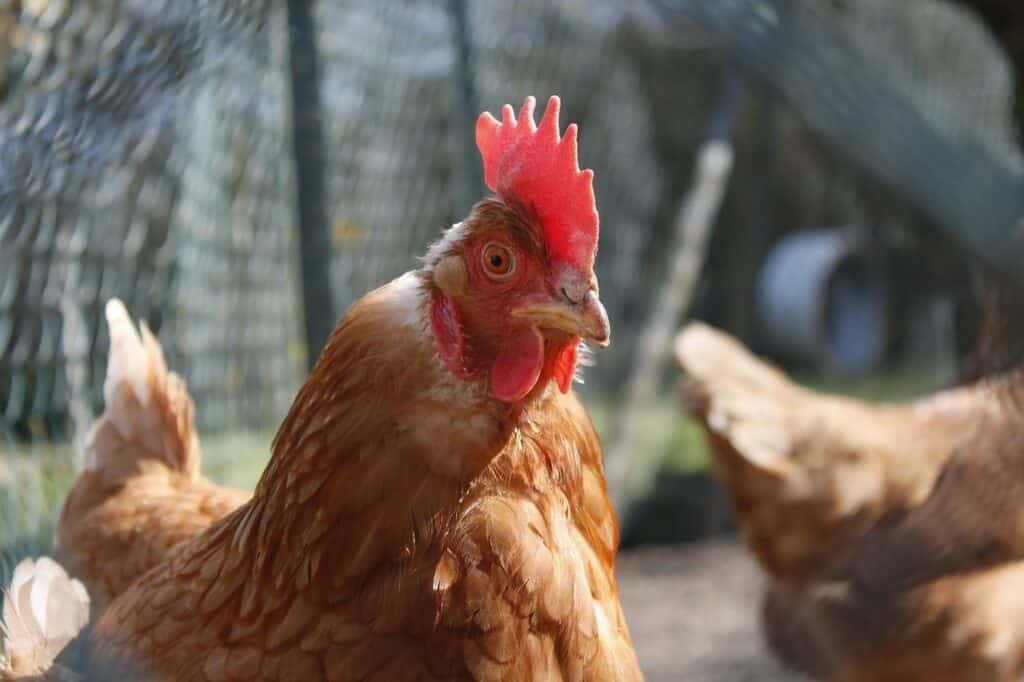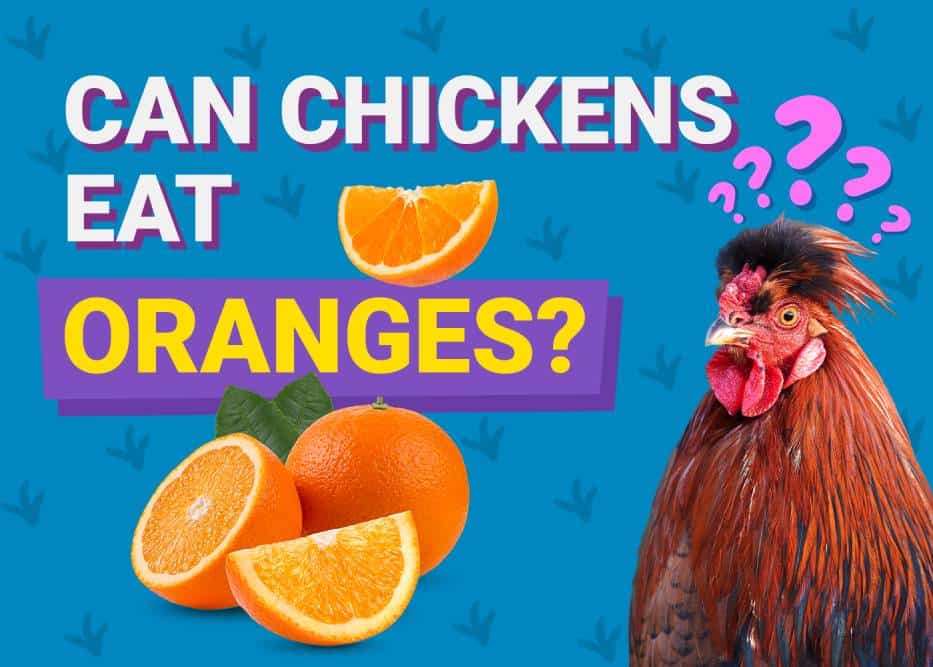Feeding your chickens food scraps is not only a frugal way to live, it also gives your chickens some variety from their boring old chicken feed. Since you are here reading this, you probably only have one question right now: can you also include oranges in that “scraps for chickens” pile?
It depends. Some sources say it’s okay, while others say it’s not. Either way, your chickens probably will not be interested in them.
Let’s find out more!

Chickens Just Don’t Love Citrus
It’s not that oranges are necessarily bad for chickens (although this website from RSPCA Australia says not to do it), but you will probably find out they’d rather not eat them. The new object thrown into their chicken coop will strike up their curiosity, so they will probably run up to it, nip at it a few times, then likely walk away dissatisfied.
Oranges, which are rich in vitamin C, could offer some health benefits to your backyard chickens. However, chickens produce enough vitamin C all on their own, so it’s not a necessary nutrient.
Because of this, there’s no need to force your chicken to eat your orange scraps. They are likely just fine eating everything else!
If you do choose to feed oranges to your chickens, make sure it’s cut up into small pieces and mixed up with the rest of their food. Experiment with just a little at first and observe your chickens. If your chickens really don’t like the taste of oranges, they may be turned off from their food altogether, so it’s good to start with a little bit at first and work up from there.
What About Orange Peels?

Some peels, like avocado peels, definitely should not be fed to chickens. However, peels from oranges are fine for chickens. Just like the oranges themselves, though, your chickens probably won’t care for the peels either.
You may have heard that oranges and orange peels are bad for chickens because some think the acid from oranges can upset a chicken’s digestive system, messing up their good and bad bacteria balance.
This acid theory is not totally proven, though, because there’s another camp of self-proclaimed chicken dietary experts that say acid is good for killing off the bad bacteria.
If nothing else, the oranges and orange peels can be fun playthings for your chickens. Some people say when they throw oranges or orange peels in their chicken coop, the chickens will kick the pieces around until you remove them.
What Fruits Are Safe for Chickens?
Now that you know how the chicken and orange relationship is, you may be curious about what other fruits are safe for chickens to eat.
Basically, the only fruit-related things you should not feed your chickens are avocado peels and pits. The flesh is fine, and other fruits, like bananas, berries, melon, apple, and much more. One type of fruit you should not feed your chicken is rancid or rotten fruit, as it could make your chickens sick.
What Are Chickens’ Favorite Food?

Chickens love to eat your scraps from chopping vegetables or peeling fruits, or even your child’s leftover pieces of food from mealtime. If you want to give your chickens an extra special treat, here are a few options that chickens love, are good for them, and won’t break the bank:
- Watermelon
- Pumpkin
- Oatmeal
- Corn
- Mealworms
- Pasta
- Cottage Cheese
- Meat
Just make sure that it’s fresh, not rotten, and cooked to completion when necessary.
Foods That Are Toxic for Chickens

When you are feeding your chickens things besides their store-bought chicken pellets or mill, you want to make sure what you are feeding them is not poisonous to them.
Also, don’t forget to feed them only foods that are fresh and pesticide and herbicide-free to keep them healthy and happy.
